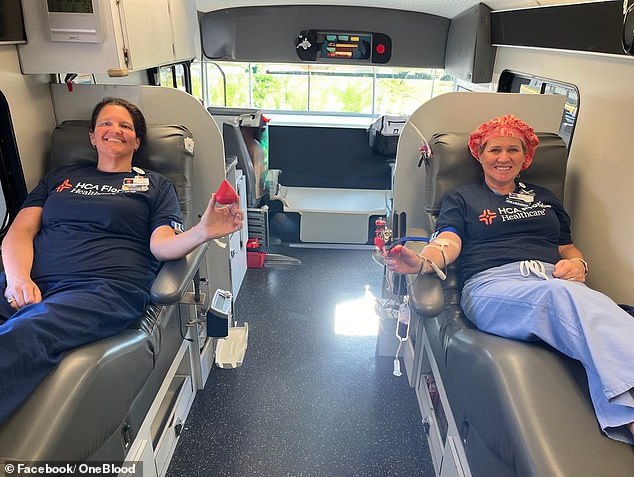‘Urgent’ health concerns as blood donation group supplying 300 US hospitals hits by cyberattack
A major blood donation organization has been hit by a cyberattack, putting the lives of the 43,000 Americans who need lifesaving blood every day at risk.
OneBlood, a nonprofit organization, serves hundreds of hospitals in the southeastern United States. The attack on the company’s computers could disrupt services to those hospitals.
Sources familiar with the situation said: The incident is being investigated as a possible ransomware attack.
OneBlood said it is “working closely with cybersecurity specialists as well as federal, state and local agencies as part of their comprehensive response to the situation.”
The organization said it is continuing to collect, test and distribute blood but is “operating at a significantly reduced capacity” and issued an urgent appeal for donors.
OneBlood describes itself as ‘a non-profit community institution responsible for providing safe, available and affordable blood’
The outage affects OneBlood’s ability to ship “blood products” to hospitals in Florida, according to an advisory sent to health care providers by the Health Information Sharing and Analysis Center, a cyber threat-sharing group, and reviewed by CNN.
That is why the organization labels blood products manually.
Susan Forbes, senior vice president of corporate communications and public relations at OneBlood, said In a statement: “OneBlood takes the security of our network extremely seriously. Our team responded quickly to assess our systems and launched an investigation to confirm the full nature and scope of the event.
“We are still implementing extensive response measures and are doing everything we can to get our systems back to full functionality as quickly as possible.”
She added: ‘We have implemented manual processes and procedures to remain operational. Manual processes take significantly longer to execute and impact inventory availability.
“To better manage the blood supply, we have asked the more than 250 hospitals we serve to activate their critical blood shortage protocols and remain in that status for the time being.”
This cyberattack comes on the heels of a global outage at Microsoft earlier this month that left hospitals and healthcare providers unable to access their electronic health records and forced them to revert to paper records.
OneBlood supplies blood and blood products to 355 hospitals in Florida, Alabama, Virginia, Georgia and the Carolinas.
There are collection centers in Florida, Georgia and the Carolinas.
The organization says it has made 1 million donations in the U.S. and employs more than 2,500 people.
Earlier this year, the U.S. emergency blood supply reached critically low levels, prompting the nation’s largest blood supplier to issue an emergency “life-or-death” blood shortage.
The American Red Cross reported a nationwide blood shortage in January, saying the number of people donating through the organization had recently dropped by 40 percent, the lowest level in 20 years.
According to the Red Cross, someone in the United States needs life-saving blood every two seconds, and more than 40,000 units of blood products are needed every day.
In addition, more than 16 million blood products are transfused annually.
Following the outage, OneBlood issued an “urgent appeal for donors.”
‘The blood supply is not self-evident. The situation we are dealing with is ongoing.
“If you are eligible to donate, we urge you to schedule an appointment to donate as soon as possible,” Forbes said.

OneBlood said it has distributed 1 million donations in the U.S. and employs more than 2,500 people

Above is a map from OneBlood of the U.S. counties where the organization has donation centers in Florida, Georgia, and the Carolinas.
People can donate both whole blood and blood components, such as red blood cells (which are typically given to trauma patients) or platelets (which promote blood clotting and are used in cancer treatments and organ transplants).
According to the Red Cross, one victim of a car accident may need up to 100 units of blood. Blood cannot be manufactured, it must come from a donor.
The global outage at Microsoft earlier this month impacted businesses and organizations across nearly every industry, from travel to healthcare to banking, and cost billions of dollars.
While not believed to be a malicious attack, a software update from cybersecurity firm CrowdStrike caused hundreds of thousands of computers around the world to suddenly shut down.
In previous cases where health and hospital computer systems have failed, patients told DailyMail.com they have been denied medications for blood clots, addiction and cancer, and have been charged up to seven times the normal price after insurance.
And in one case, a nine-month-old baby lost her life.
Experts from the Ponemon Institute, an independent research group that studies critical security issues, surveyed more than 600 healthcare institutions and found that a quarter of locations saw an increase in fatalities after a ransomware attack.
